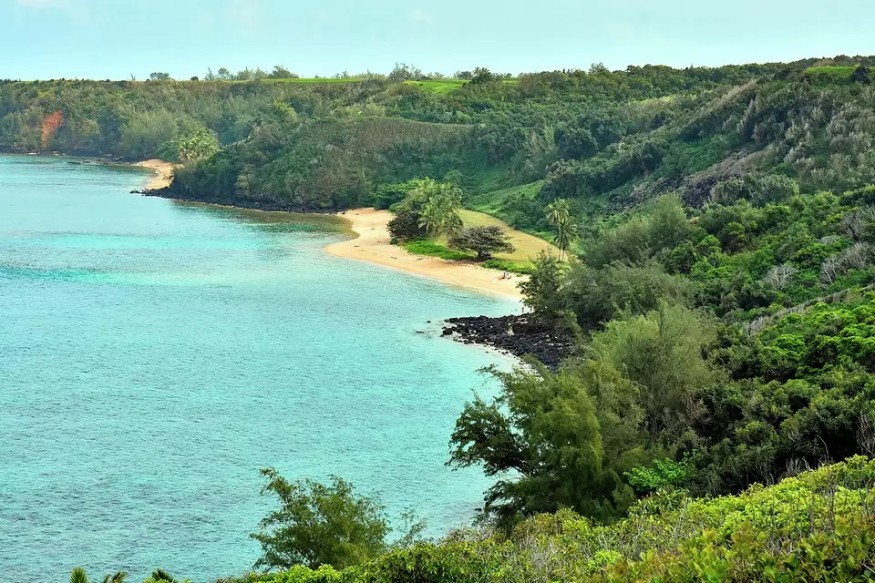Is Mark Zuckerberg Building a $270M Apocalypse Bunker? Facebook CEO Allegedly Owns 1,400 Acre of Mansions With Tunnels in Hawaii

The Futility of Wealth in the Face of Mortality
In a world where the fear of death transcends wealth, the rich embark on a futile quest for immortality, unveiling the stark contrast between their proclaimed ideals and proper priorities. The relentless pursuit of a longer lifespan becomes a symbolic gesture, highlighting the vulnerability that even the wealthiest cannot escape.
The opulence of pure food, expensive healthcare, and personal trainers merely postpones the inevitable. Death, the great equalizer, looms over all, exposing the anxiety that piles of money cannot shield against. In their desperate attempts to stave off the inevitable, the wealthy reveal a pitiful struggle akin to trying to halt an oncoming freight train with bare hands.
Zuckerberg's Ambiguous Legacy
In 2015, Mark Zuckerberg, Facebook's founder and one of the richest individuals globally, announced plans to give away the majority of his wealth to promote equality. However, recent revelations about his ambitious project on the Hawaiian island of Kauai suggest a different narrative. Zuckerberg's lavish ultraluxury compound with mansions, treehouses, and underground shelters contradicts his professed commitment to global equality.
Journalist Guthrie Scrimgeour's investigative story for Wired magazine unveils Zuckerberg's nearly decade-long endeavor, raising questions about the sincerity of his charitable intentions. Shrouded in secrecy, the $270 million project includes a 5,000-sq-ft underground shelter with its energy and food supplies- a stark contrast to Zuckerberg's proclaimed dedication to promoting equality.
Beneath every billionaire's facade of charitable giving lies an unending well of self-preservation. The grandiose plans for an apocalypse bunker expose the hypocrisy in Zuckerberg's and other billionaires' rhetoric about equality and progress. While checks are written in the name of charity, they serve as tranquilizer darts to appease the public, preventing them from questioning the motives behind extravagant, self-serving projects.
Moral philosophers argue that sporadic philanthropy does not absolve the wealthy from ethical responsibility. In a resource-constrained world, billionaires must continually use their vast resources to address societal needs. Yet, immense wealth bestows unprecedented power, realizing impractical and ego-driven dreams.
As Mark Zuckerberg attempts to elevate himself above the mortal risks of the world, the irony lies in the realization that money loses its value in the face of a genuine apocalypse. The security guards, the construction workers, and society facilitating wealth accumulation become unpredictable elements.
In a profound twist of fate, the billionaire, like Ozymandias, may find that all planning to escape mortality was in vain. The flaws inherent in capitalism, accentuated by the concentration of wealth and power, underscore the desperate and sometimes tasteless measures taken by the ultra-rich.
In the end, Zuckerberg's private apocalypse bunker becomes a metaphor for the futile struggle against the inevitable. The desire to possess opulent wealth and a virtuous persona remains an unattainable dream. As the world grapples with the consequences of extreme wealth concentration, it is a reminder that no pile of gold can shield against the true uncertainties of life. Perhaps, as the article suggests, a different path, one aligned with socialist ideals, might have offered a more genuine sense of security in times of peril.
From Digital Models to 3D-Printed Homes: Jaspreet Kaur Lall Explains How the Innovation Changes the Construction Industry

Future Belongs to Green Construction: Sampath Kumar Paspunoori Explains One of the Key Trends in the Construction Industry

Kamala Harris' Campaign Ad Uses Iconic Visuals from Carrie Mae Weems to Connect with Voters

Historic Ancient Roman Ruins in Baalbek Remain Strong After Israeli Air Strikes; Locals Seek Cultural Protection

4 Ways to Honor Departed Loved Ones in Your Home Design














